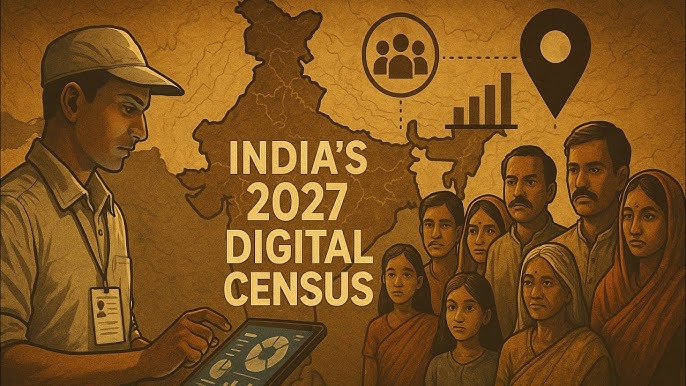📰 India’s 2027 Digital Census: A Step Toward Inclusion or a Threat to Privacy?📍By The Information Media |
July 18, 2025India is set to conduct its first-ever fully digital census in 2027 — a historic and ambitious step aimed at transforming governance and policymaking. For the first time in decades, this census will also include caste-based enumeration, aiming to provide a clearer picture of socio-economic inequality across the country.However, while the initiative holds promise for better data-driven policies, it also raises serious concerns regarding privacy, surveillance, and digital exclusion.
🔹What Will the 2027 Census Look Like?Data will be collected using mobile apps and digital devices, eliminating traditional paper forms.Officials will record details including name, age, caste, religion, income, education, and location.Citizens may also be able to self-enumerate through an online portal.The move is being promoted as a leap toward efficiency, transparency, and targeted welfare delivery.
🚨 Concerns Mount Over Privacy and EqualityDigital rights experts and civil society groups warn that:Without a robust Data Protection Act, sensitive personal data could be leaked or misused.There’s a growing fear of state surveillance and profiling, particularly of minorities and dissenting communities.
India has seen multiple cyberattacks on public infrastructure — any breach of census data could expose millions to risks.The census could deepen the digital divide, excluding people in rural or remote areas without smartphones, internet access, or digital literacy.
🎯 Caste Data: A Double-Edged SwordMany social justice advocates support caste enumeration, saying it will:Help design affirmative action policies based on real data.Reveal the true socio-economic condition of backward and marginalized communities.But others caution that:Caste data might be politicized or weaponized during elections.It could intensify identity politics and deepen divisions.
🛡️ What India Must Do NextTo ensure that the digital census is safe, inclusive, and fair, the government must:Finalize and implement a comprehensive Data Protection Law.Establish independent oversight bodies for data governance.Allow offline or assisted options for marginalized groups.Be transparent about how data will be stored, used, and secured.
🧭 ConclusionIndia’s 2027 digital census is an important milestone — it holds the potential to reshape policymaking for the better. But without adequate safeguards, it also poses unprecedented risks to citizen privacy, data security, and social harmony.The success of this effort will depend not just on technology, but on trust, transparency, and inclusion.

